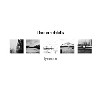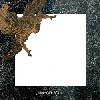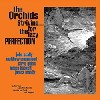The Orchids' reissues
The Orchids composed dreary-voiced, indie pop dirges with typical Scottish languor for Sarah Records from 1987 through 1995.This three-disc retrospective anthology is akin to LTM's treatment for Sarah labelmates The Field Mice, though thankfully LTM prudently chose toretain the original cherubic artwork for these three releases. The Orchids' long players (as opposed to their many singles) featured angelicimages, often with Gustav Dore-inspired illustrations laid out imaginatively. The cover art was always striking and often stark (see Lyceum and Unholy Soul for examples, and the earlier collection Epicureanif you can find it). Vocalist James Hackett's singing ranges far from theglories of angels, though it might be called angelic by some. It stands somewhere between a loud whisper and a mumbling chorus boy's diffident chirpings. It reminds me a little of Felt's Lawrence in its register butwithout the regalia and confidence therein.
 The strongest of the three discs happens to be the earliest, chronologically. Lyceum + Singles features the most memorable of The Orchids' songs, perhaps because it contains a variety of songs which depart from the band's anesthetized pop compositions. "Caveman" is playful and soaring, with guitar lines almost exploding and running headlong from the chorus; "Walter" channels a more ancient garage rock/'60s feel, though it does introduce saxophone for some added '80s wankiness; listening to "Apologies" will beg the question whether or not your CD carousel decided to skip to The Clean retrospective in the next CDberth since it sounds identical to the Australian band both vocally and melodically (simply listen to the way Hackett enunciates the word "realize" before you tell me I'm wrong); "Yawn" begins with some awkward incantation but then with utter brittleness rises to a balanced and meditative exploration on beauty. Though "Yawn" is an untypically long song for The Orchids. maintaining its ruminations for well over seven minutes, it is also their most successful statement on the album. On a different note, the most tragic song on Lyceum is "Blue Light," whose absolute fragility and frailty could itself break a weak and unwary listener into many tiny pieces of flesh. Hackett's desperately quiveringvocals might even have the ability to shatter a stronger listener. Everyworthwhile Orchids' song appears on Lyceum and it is the most integral ofthe three.
The strongest of the three discs happens to be the earliest, chronologically. Lyceum + Singles features the most memorable of The Orchids' songs, perhaps because it contains a variety of songs which depart from the band's anesthetized pop compositions. "Caveman" is playful and soaring, with guitar lines almost exploding and running headlong from the chorus; "Walter" channels a more ancient garage rock/'60s feel, though it does introduce saxophone for some added '80s wankiness; listening to "Apologies" will beg the question whether or not your CD carousel decided to skip to The Clean retrospective in the next CDberth since it sounds identical to the Australian band both vocally and melodically (simply listen to the way Hackett enunciates the word "realize" before you tell me I'm wrong); "Yawn" begins with some awkward incantation but then with utter brittleness rises to a balanced and meditative exploration on beauty. Though "Yawn" is an untypically long song for The Orchids. maintaining its ruminations for well over seven minutes, it is also their most successful statement on the album. On a different note, the most tragic song on Lyceum is "Blue Light," whose absolute fragility and frailty could itself break a weak and unwary listener into many tiny pieces of flesh. Hackett's desperately quiveringvocals might even have the ability to shatter a stronger listener. Everyworthwhile Orchids' song appears on Lyceum and it is the most integral ofthe three.
samples:
 Unholy Soul + Singles is a more inconsistent album, peppered with hits andmisses, often abutting one another. "Long Drawn Sunday Night" has a lovely and insinuating chorus: quiet but severe in its pronouncement. Yetthe whole tone of that song is undercut by the subsequent "Peaches" and its full-on R+B emulation. The R&B female chorus sounds like something more appropriate to the coeval Terence Trent D'arby single. Presently, the lyrics of "Tropical Fishbowl" are quite topical and fitting, since ithas been raining here for an entire week and when Hackett inquires, "Are you the girl, standing in the rain?," it applies ubiquitously. "Me and theBlack and White Dream" moodily combines a thick and playful bass line withthe typical jangly guitars of the band, while the recognizable "Somethingfor the Longing" musically approaches the anthemic, only to contrast it with lyrically unambitious sentiments: "And we can walk for hours and hours." On second thought, walking for hours and hours might actually beambitious for a band as morose as The Orchids. That could net a good sixmiles (9.66 kilometers).
Unholy Soul + Singles is a more inconsistent album, peppered with hits andmisses, often abutting one another. "Long Drawn Sunday Night" has a lovely and insinuating chorus: quiet but severe in its pronouncement. Yetthe whole tone of that song is undercut by the subsequent "Peaches" and its full-on R+B emulation. The R&B female chorus sounds like something more appropriate to the coeval Terence Trent D'arby single. Presently, the lyrics of "Tropical Fishbowl" are quite topical and fitting, since ithas been raining here for an entire week and when Hackett inquires, "Are you the girl, standing in the rain?," it applies ubiquitously. "Me and theBlack and White Dream" moodily combines a thick and playful bass line withthe typical jangly guitars of the band, while the recognizable "Somethingfor the Longing" musically approaches the anthemic, only to contrast it with lyrically unambitious sentiments: "And we can walk for hours and hours." On second thought, walking for hours and hours might actually beambitious for a band as morose as The Orchids. That could net a good sixmiles (9.66 kilometers).
samples:

Striving for the Lazy Perfection + Singles strives to be more affected than earlierworks. The album starts off a little harder, rougher, and with a splash of violence, though soon lapses into more saccharine dance fusion which leaves you scratching your head instead of cutting a rug. That the word "hate" sneaks up a few times in the almost-growled lyrics of "Obsession No. 1" is an early indicator of this. The title track returns The Orchidsto their earlier sound, albeit laced over bubbly electronic percolations which indicate the band's unavoidable tug towards the contemporary dance scene (The Orchids were not the only indie pop band to suffer this hybrid:The Field Mice, Northern Picture Library, and others all fell victim to what could justifiably be called Primal Scream syndrome). "Searching" ends with an awkward homage to guitar gods, unsurprisingly unappeased by this corny solo (the song's coda) which sounds entirely out of place and loses its place as it trails off into the fade-out of the song. Unfortunate sampling plagues much of Striving. The tendency to intertwinea song with some found sound (usually an esoteric talking piece) is over-featured here, though it often just calls out an already faltering song as truly malignant. "A Living Ken and Barbie" is the prime example.With the song, the band is possibly trying to make some type of ideological statement about vanity but the statement is carried by a jalopy of a vehicle and crashes early on. It doesn't get a whole lot better from there. "Thaumaturgy" is pleasant enough, but it cannot perform the miracles its title suggests. Instead, the song offers to throw a simple life vest to an album (and perhaps a band) which actually needs a lifeboat. Striving closes with the confusing blues jam "The Letter," a song which channels Tom Waits at the end. Somehow, ths inexplicable finale is inexplicably appropriate.
samples:



